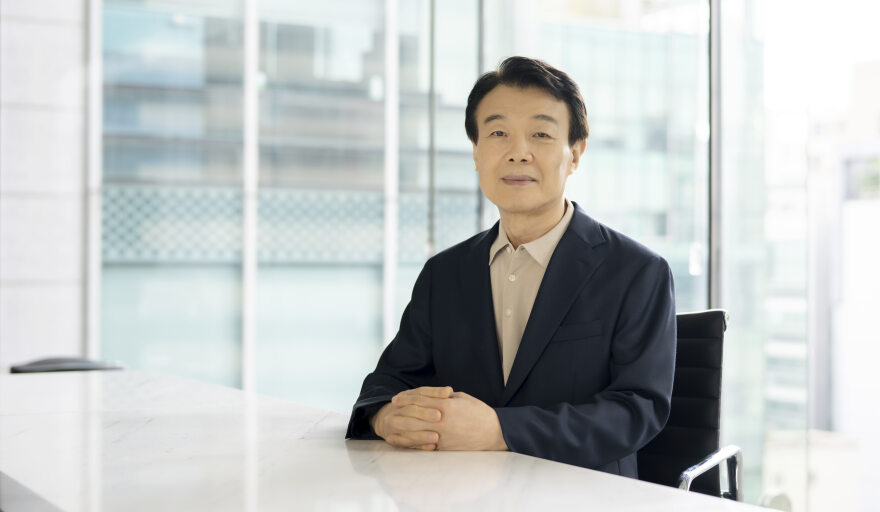In the end, it’s the leader’s responsibility

Young Bum Kwon, CEO & Founder of YoungLimWon Soft Lab
<永-Way : CEO’s 44th Remarks at YoungLimWon Soft Lab>
“In the end, it’s the leader’s responsibility”
1st September 2023
“Among those who wear crowns, the most cowardly and low-ranking emperor hides in his palace, causing others to suffer for his wrongdoings. The emperor ordered his foreign minister to sign a treaty and then to claim that he had not ordered it, causing the foreign minister to shoulder all the blame.”
-Willard Straight, American Vice Consul to Korea
This passage is from a document published in 1905 by Cornell University. Willard was the vice consul to the Korean Empire and recorded his experiences. Here, the emperor refers to Gojong, the treaty is the Eulsa Treaty, and the foreign minister is Park Je-soon. Last Tuesday (August 29th) marked the shameful day in 1910 when our nation was annexed by Japan through a treaty. We must learn from past history to avoid making the same mistakes. To do so, it’s especially important to learn accurate history. We need to see history based on objective facts and universal truths beyond stories of those who exploit history for personal gain and ambition.
If we examine Gojong’s actions before and after the nation was ruined in 1910, it will become clear who was mainly responsible for the collapse. On March 20, 1904, Ito Hirobumi visited Gojong, and it’s recorded in the British diplomatic journal that Min Yeong-hwan spoke of Ito offering 300,000 yen to Emperor Gojong as a “gift from the Emperor” and guaranteeing Gojong’s stake in the Gyeongbu Railway.
Six days before the Eulsa Treaty was signed on November 11, 1905, Japanese Minister Hayashi Gonsuke executed a confidential payment of 100,000 won. ‘20,000 won to the Emperor, 3,000 won to Chief Secretary Gu Wan-hee, 3,000 won to Minister of Justice Lee Ha-young, and 20,000 won as a future measure to Yi Wan-yong, Yi Geun-taek, and Yi Ji-yong; 15,000 won to Foreign Minister Park Je-soon and one or two other ministers.’ It’s recorded that the average carpenter’s annual salary at the time was 200 won.
After the Eulsa Treaty was signed on November 17, 1905, Gojong’s first action was to dismiss Han Gyu-seol, who was the only official among the ministers to oppose the treaty, and to appoint Park Je-soon, who was a party to the treaty, as Minister of Justice.
Records show that petitions criticizing Gojong’s attitude poured in. For example, on November 27th, elder statesman Cho Byeong-se and his group entered the palace and protested, but Gojong chased them out, saying, “Why don’t you listen even after several warnings?” Cho was taken by Japanese military police, and the next day Min Yeong-hwan followed. Two days later, Min Yeong-hwan committed suicide, and the day after that, Cho Byeong-se committed suicide.
In the ‘Korea-Japan Annexation Treaty’ concluded in 1910, Articles 3 and 4 promise to maintain the Korean royal family’s status and provide corresponding allowances, occupying two out of the eight articles. Starting from 1911, an allowance of 1.5 million won was paid, and from 1921, 1.8 million won was paid until 1945. Even though the nation was ruined, the royal family and their relatives lived comfortably.
Considering all the above, it can be deduced that Gojong was the main culprit who sold out the nation. At the time, society was dominated by Confucianism, so scholars who were steeped in the idea of loyalty and filial piety could not directly attack the king. Therefore, the fact that Gojong’s actions were cowardly, greedy, and shameful was buried quietly.
As seen from Gojong’s example, before any country is ruined by external invasion, it must first collapse from internal problems. The collapse of internal organizations occurs due to a lack of public ethics and insights into changes in the world. Therefore, it is most important to choose the right leader for the prosperity of the community.




